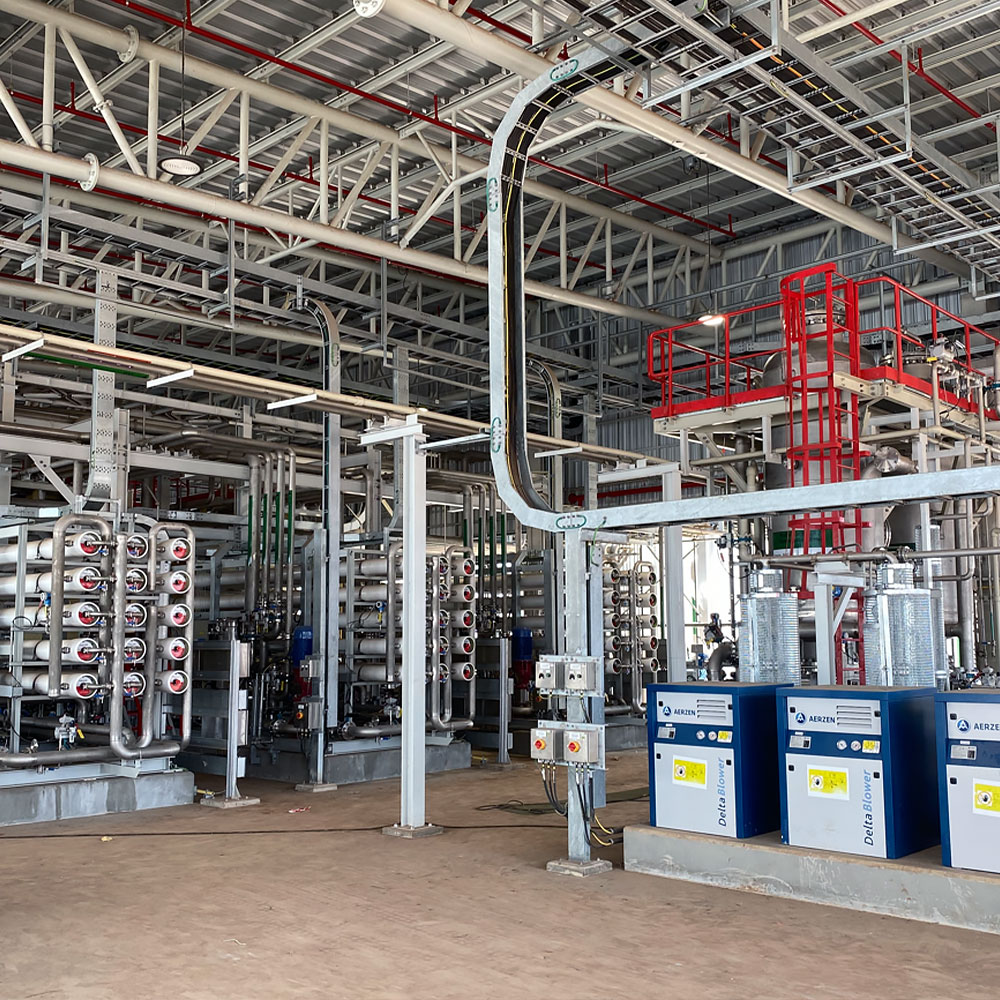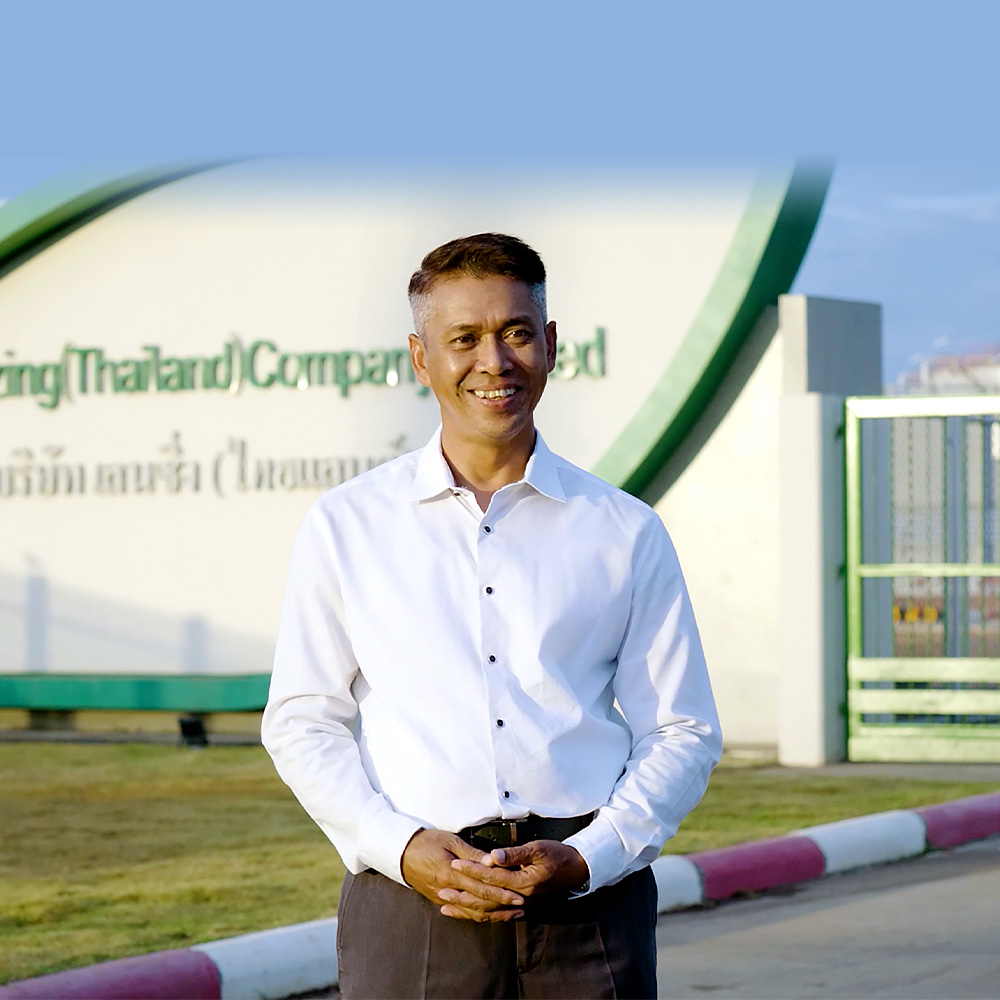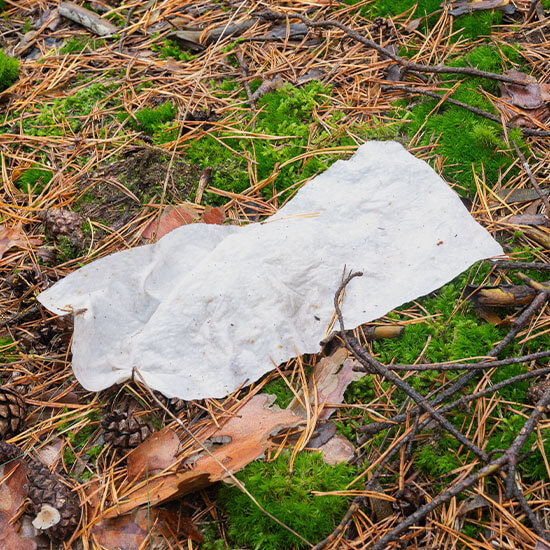Lyocell levels up in Asia
Specialty fibers have a bright future in Asia
Our investments in Asia underpin our commitment towards achieving a zero-carbon future while working to increase our specialty fiber share of the fiber market. The region has the largest demand globally for cellulosic fibers, therefore focused expansion of our regional production capacity makes strategic and commercial sense.
We were especially proud of progress made by the end of 2021 on construction of the world’s largest lyocell plant in Prachinburi (Thailand). As the first project of this scale that we have delivered outside Austria, it will be a game changer in terms of future revenue.

The state-of-the-art lyocell production site in Prachinburi (Thailand) will be the largest of its kind.

It will be the largest lyocell production plant in the world bringing lyocell fiber to the largest markets.”
Ismail Abdullah
Site Director Thailand
Construction on our state-of-the-art site in Thailand reached mechanical completion in November 2021, with production set to start in the first quarter of 2022. “It will be the largest lyocell production plant in the world bringing lyocell fiber to the largest markets,” said Ismail Abdullah, Site Director. “When we first started scoping out locations for the site in 2018, we knew we wanted to be closer to customers, and now we are.”
Located on an industrial park northeast of Bangkok, the plant is close to both the international airport and the main port of Laem Chabang. “This improves access to customers and the supply chain. We sell most of our lyocell fiber products to countries such as India, Bangladesh, Pakistan and China. There is also an emerging market in Vietnam.”
The site will use renewable biomass energy while producing lyocell in a closed loop production process with recovery rates close to 100 percent. “People are proud to be part of such a pioneering team,” Ismail added. “I am very proud of the team. We have achieved more than 16.9 million man-hours without time lost to injury. It has been a joint effort with everyone working hard on the project.”
Increasing specialty fiber market share, reducing carbon emissions
We have been developing our presence in China and Indonesia throughout 2021 and reducing our carbon emissions as a result of the expansion. A financial commitment of more than EUR 200 mn has initiated the transformation of our sites in Nanjing (China) and Purwakarta (Indonesia) so that both facilities will produce 100 percent specialty fibers to EU Ecolabel standards by 2023.
investment in the transformation of sites
in Nanjing (China) and Purwakarta (Indonesia)
Nanjing (China) will be the first wood-based fiber complex in the country to rely on renewable energy.
Purwakarta (Indonesia) will produce 100 percent specialty fibers to EU Ecolabel standards by 2023.
The impact of these investments, combined with the plant in Thailand, will increase our percentage share of specialty fibers in fiber revenues to well above the targeted 75 percent by 2023. The elimination or reduction of fossil-based energy consumption on each site will also reduce carbon emissions regionally by 320,000 tons compared to our 2017 output.
carbon emissions
regionally compared to 2017
The future is bright for specialty fibers in China
Since the Chinese government announced in September 2021 that it wants China to be carbon neutral by 2060, we are proud to support this target with our wood-based (cellulosic) fiber complex in Nanjing, which will rely on renewable energy rather than coal as a power source. This site will also position us to take advantage of any opportunities to work with suppliers and customers in China.
“I have been working closely with the China National Textile and Apparel Council (CNTAC) to help the textile industry position itself in a more sustainable way,” explained Sandy Liu, Sustainability Manager for North Asia. “There is no other company in the region that has our expertise, and businesses want to understand and learn about ESG.”
“We are providing training that helps promote understanding of what it means to achieve a zero-carbon future. We successfully piloted Life Cycle Assessment for garments together with CNTAC and supported them in setting up a Life Cycle Assessment Working Group. We invited our business partners to join and provide data, which enabled them to understand the carbon emissions of their own products and how to reduce them.”
“We also joined CNTAC’s ‘30-60 Net Zero Accelerating Plan’ and took the lead by sharing the greenhouse gas emission targets and performance of the Nanjing site. It is a real commitment.” Work with CNTAC will continue with greater intensity into 2022. “We are developing training programs to build textile producers’ and designers’ capacity to understand sustainability targets and measures, as well as sustainable products and production processes. We will soon expand this information to consumers too. Lenzing fibers have a bright future in China.”


